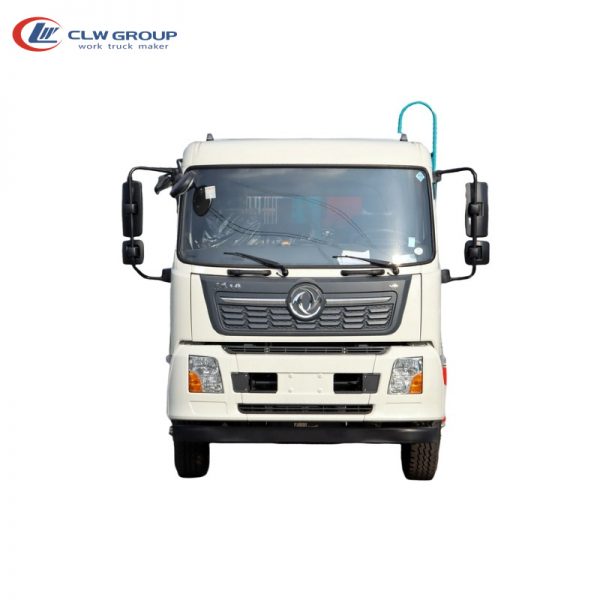Introduction
Work truck trailers play a crucial role in various industries, transporting goods and equipment efficiently and safely. With the rapid advancements in technology, the integration of Internet of Things (IoT) has revolutionized the way work truck trailers operate. IoT technology enables real-time monitoring, data collection, and analysis, leading to enhanced efficiency, productivity, and safety in the transportation of goods. This article explores the impact of IoT on work truck trailers, the benefits it offers, challenges, and future prospects.
1. Understanding IoT in Work Truck Trailers
1.1. What is IoT?
Internet of Things (IoT) refers to a network of interconnected devices, vehicles, and appliances that communicate and share data over the internet. In the context of work truck trailers, IoT technology involves equipping trailers with sensors, GPS trackers, and communication devices to collect and transmit data related to the trailer's location, performance, and condition.

1.2. clw group in Work Truck Trailers
IoT technology offers a wide range of applications in work truck trailers, including:
- Real-time tracking: GPS-enabled sensors provide precise location tracking of trailers, enabling fleet managers to monitor the movement of trailers remotely.
- Condition monitoring: Sensors can track various parameters such as temperature, humidity, and pressure inside the trailer, ensuring that goods are transported under optimal conditions.
- Predictive maintenance: IoT systems can monitor the performance of trailer components and predict potential failures, allowing for timely maintenance and minimizing downtime.
- Safety and security: IoT-enabled cameras and sensors can monitor the surroundings of the trailer, detect theft or unauthorized access, and alert the relevant authorities.
2. Benefits of IoT in Work Truck Trailers
2.1. Enhanced Efficiency
IoT technology enables real-time monitoring of trailer locations, routes, and performance metrics, leading to optimized fleet operations. By analyzing data collected from IoT sensors, fleet managers can identify inefficiencies, reduce idle time, and improve overall operational efficiency.
2.2. Improved Safety
IoT-enabled work truck trailers enhance safety by providing real-time alerts and notifications in case of accidents, breakdowns, or unauthorized access. Sensors can detect unsafe driving behavior, harsh braking, or acceleration, enabling fleet managers to take corrective actions and prevent accidents.
2.3. Cost Savings
By enabling predictive maintenance and efficient route planning, IoT technology helps reduce maintenance costs, fuel consumption, and overall operational expenses. Real-time data analytics allow fleet managers to make informed decisions that optimize resource utilization and minimize unnecessary expenditures.
2.4. Enhanced Customer Service
IoT-enabled work truck trailers provide visibility into the status and location of goods in transit, enabling better communication with customers regarding delivery schedules and potential delays. Improved tracking and monitoring capabilities lead to enhanced customer satisfaction and loyalty.
3. Challenges of Implementing IoT in Work Truck Trailers
Despite the numerous benefits of IoT technology in work truck trailers, there are several challenges that organizations may face during implementation:
- Initial Investment: The cost of equipping work truck trailers with IoT sensors and devices can be significant, requiring organizations to make a substantial upfront investment.
- Data Security: IoT systems collect and transmit sensitive data, raising concerns about data security and privacy. Organizations need to implement robust cybersecurity measures to protect against potential cyber threats.
- Integration Complexity: Integrating IoT technology with existing fleet management systems and processes can be complex and time-consuming, requiring careful planning and coordination.
- Skills Gap: Implementing and managing IoT technology requires specialized skills and expertise, which may be lacking within organizations. Training and upskilling employees are essential to ensure successful implementation.
4. Future Prospects of IoT in Work Truck Trailers
The future of IoT in work truck trailers looks promising, with ongoing advancements in technology and increasing adoption across industries. Some key trends and developments to watch out for include:
- Edge Computing: Edge computing technology enables data processing and analysis to be conducted closer to the source, reducing latency and improving real-time decision-making in IoT systems.
- Artificial Intelligence (AI) Integration: AI-powered algorithms can analyze vast amounts of data collected from IoT sensors to generate actionable insights, optimize operations, and predict maintenance requirements.
- Blockchain Technology: Blockchain can enhance the security and transparency of data in IoT systems, enabling secure transactions, data sharing, and traceability in supply chain operations.
- 5G Connectivity: The rollout of 5G networks will enable faster data transmission, lower latency, and greater connectivity for IoT devices, unlocking new possibilities for real-time monitoring and control of work truck trailers.
Conclusion
IoT technology is transforming work truck trailers, offering numerous benefits in terms of efficiency, safety, cost savings, and customer service. While there are challenges to overcome, the future prospects of IoT in work truck trailers are promising, with ongoing technological advancements and increasing adoption across industries. By embracing IoT technology and leveraging its capabilities, organizations can optimize their fleet operations, enhance safety, and improve overall performance in the transportation of goods.
